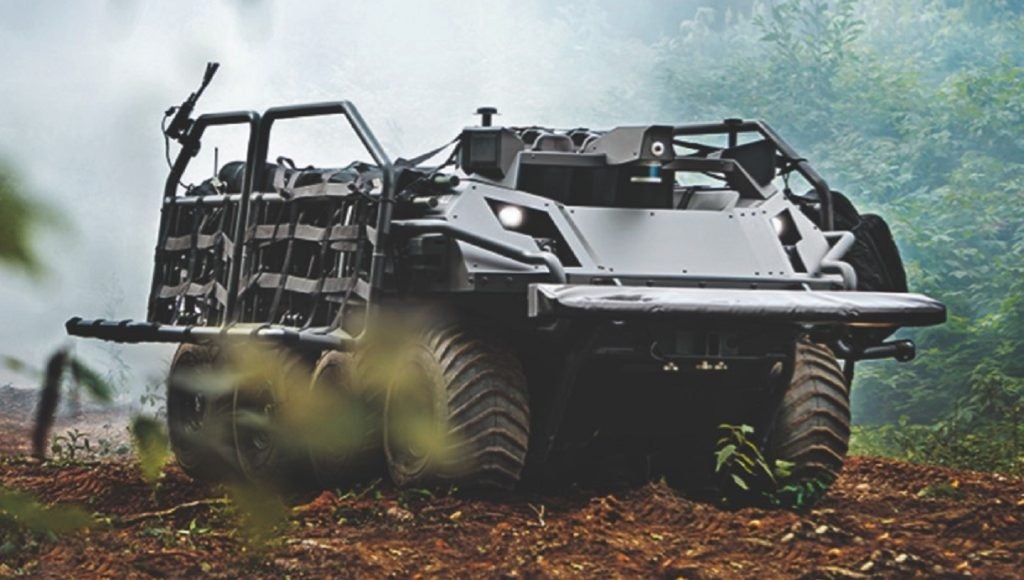Eleven companies, including the German defence company Rheinmetall, showcased the navigational autonomy of their unmanned ground vehicles (UGVs) in an event held in Estonia.
The Estonian Military Academy and the Estonian Defence Forces held the event to test the limits of autonomy under the supervision of defence and autonomy specialists from Finland, Germany, the Netherlands, Norway, Sweden, and the UK. The event attracted a multinational audience of military and civilian experts from over 20 countries.
Rheinmetall announced it had tested its fully electric UGV, the Mission Master Silent Partner (MMSP) – a low-profile system engineered to assist and reduce danger to soldiers – against the Baltic nation’s rugged woodland terrain. While the trial was not a competitive event, the manufacturer noted the system’s “limited driver intervention, obstacle avoidance technology, speed and manoeuvrability.”
MMSP is part of the Mission Master family of UGVs. The vehicle comprises a low-signature electric motor for stealth; Rheinmetall’s PATH autonomy kit: an AI-powered navigation system; and a suite of agnostic sensors and perception algorithms that allow it to navigate through challenging environments.
Navigational autonomy in developing combat UGVs
According to GlobalData’s recent thematic intelligence report on Unmanned ground Vehicles (2023), the autonomous capability of UGVs would only go as far as to provide logistical services.
The complexities of developing and operating a UGV compared to Unmanned Aerial Vehicles or Unmanned Surface Vehicles meant the operational remit of UGV platforms remained extremely limited until 2015. The large majority of deployments involved teleoperated, unarmed UGVs conducting explosive ordnance disposal (EOD) and de-mining operations.
However, GlobalData points out that “UGV technology has made important strides over the last seven years, with advances in semi-autonomous navigation and trafficability solutions rendering current platforms far more capable than their older EOD-tailored counterparts.
“Military organisations around the globe have been increasingly amenable to fielding prototype UGV platforms in operational theatres to accelerate development by field testing the platforms to identify key vulnerabilities in realistic but semi-controlled environments.”
This context prompted Rheinmetall to announce its milestone in autonomous navigation technology and adds in its press release that “in addition to autonomous navigation, the MMSP can support crewed and remote teleoperation, and seamlessly transition between each mode. The vehicles can also be fitted with different modules, including logistic transport, fire support, and medical evacuation.”











